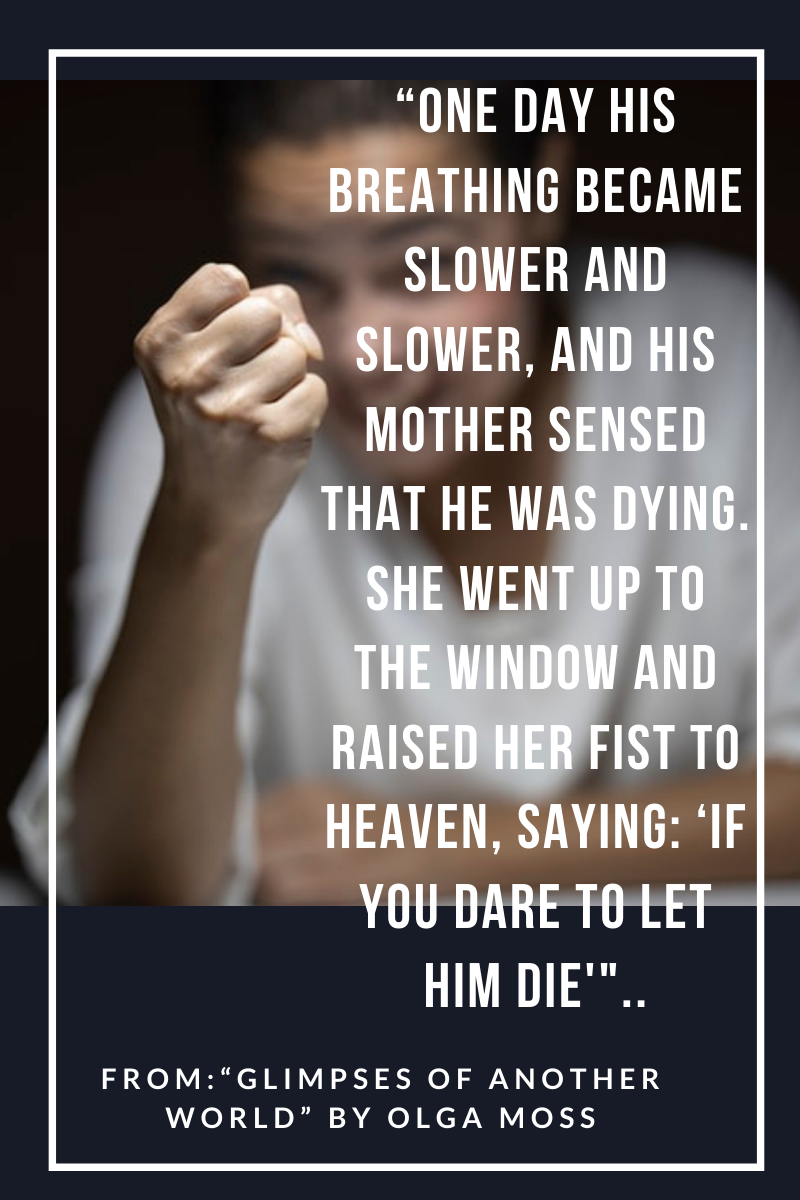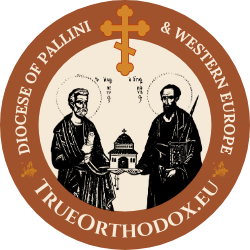WHEN IS IT TIME TO DIE?

By Dr. Vladimir Moss
During this time of coronavirus pandemic, we are being showered with statistics about how many people are dying, who are dying, what are our chances of dying, etc. But Orthodox Christians know that the time and manner of our death is determined by God, not by statistics. This is not to despise statistics (if they are reliable, of course): it is to recognize that Divine Providence presides over all the phenomena of nature and the laws of nature – as well as the exceptions to those laws that we call miracles. We know that “all things work together for good for those who love God” (Romans 8.28). It is inconceivable that that fundamental law of God’s Providence should not apply to the most important event of our lives – our death. Very broadly speaking, we may divide the real, providential causes of the time and manner of every man’s death into two categories: (1) It is conducive to the salvation of a man that he die now, and not earlier or later; (2) It is conducive to the salvation of a man’s neighbours that he die now, and not earlier or later. 1. “How could anything continue to exist unless You willed it?” asks the wise Solomon (Wisdom 11.25). And again: “There was a man pleasing to God and loved by Him, and while living among sinner he was taken up, lest evil change his understanding or deceit beguile his soul… He was made perfect… Therefore He took him early from the midst of evil” (4.10-11, 13, 14). Even the perfect man can fall into temptation (was not Adam perfect before his fall?), and one way of being delivered from temptation is to die before encountering it. The Lord promised salvation to His chosen sheep, saying: “I give them eternal life, and they shall never perish, neither shall anyone snatch them out of My hand. My Father, Who has given them to Me, is greater than all, and no one is able to snatch them out of My Father’s hand” (John 10.28-29). At the same time, we know that during the last times “unless those days were shortened, no flesh would be saved; but for the elect’s sake those days will be shortened” (Matthew 24.22). So death can come as a true deliverance and salvation… Sometimes death is literally life-saving, as the following story illustrates: “When I was in Boston, USA, I heard about a woman who was living in the same Convent of the Holy Nativity where I was staying as a guest. She was a Greek widow with a twelve-year-old son – her only child, to whom she was very devoted. He was a very nice boy, but weak in character and easily influenced by whatever company he happened to be keeping. At the age of 12, he had cancer of the liver, which was so advanced that the doctors, despairing of helping him, sent him home to die. “One day his breathing became slower and slower, and his mother sensed that he was dying. She went up to the window and raised her fist to Heaven, saying: ‘If You dare to let him die…’ She went back to her son’s bed expecting to see him die, but to her surprise, she noticed that his breathing became gradually easier. As the days passed, to the surprise of everyone, the boy not only survived but his liver showed not a trace of cancer. It was a miracle, and the newspapers carried the story. “The widow was thrilled, but deep in her soul she wondered how God could have been frightened of her and therefore allowed her son to live. But she pushed these thoughts from her mind and rejoiced – at first. Some years later, however, when the boy was 15 years old, she noticed money disappearing from her purse and objects disappearing from her home. When she questioned the boy, he was rude, denied everything, and daily became more and more difficult to live with. He was in a group of bad youngsters, and his love for his mother seemed to have gone. Instead, he resented her and even seemed to hate her. “Night after night she lay in bed worrying about him, and one night she said in despair: ‘I wish you were dead!’ As soon as she had said this, she remembered how she had “dared” God with her fist raised, and she started sobbing in despair. Some weeks later, the TV news reported that an old woman had been battered to death in her home by a group of youths. Her heart became heavy with the premonition that her son had been among them. Then there was a knock at the door, and she opened it to a policeman who asked her where her son was. She said that she did not know. He told her that he was suspected of having been a member of the gang. Hours went by in the torture of uncertainty, and finally, the police came again, this time to tell her that her son had been one of the gang, that he and the others had been chased by the police, and that he had leapt from a wall and broken his neck. He was dead. “His mother is now living the rest of her life repenting of her blasphemy and shedding tears on behalf of her son. She tells everyone: ‘God loved my son more than I did, and it was for the sake of the salvation of his soul that He was going to allow him to die at the age of 12 years before corruption would get hold of him. I doubted in the Goodness, Love, and Wisdom of God. I dared Him, and for the sake of the salvation of my own soul, He granted me my wish to prove that His love is greater than mine. The fate of my son now depends on my tears of contrition. Maybe he repented at the last minute and cried out to God. I shall never know whether he was too hardened. I can only plead with God to have mercy on our souls.’” (Olga Moss, “Glimpses of Another World”). If God has chosen a man for eternal life with Him, He will take him away from this life at exactly the right moment for his salvation: long enough, so that he can accomplish good works, repent and receive the grace of the Holy Spirit, and not too long, in case he fall into mortal sin and remain in it. In the life of St. Joasaph of Belgorod, it is recorded that the holy hierarch came to a parish, where the local priest was 120 years old but still full of health. Wondering at this, the saint invited the priest to do confession with him. During this confession, the priest confessed a mortal sin that he had never before revealed – and promptly died. God in His great mercy had prolonged his life so that he should be absolved of a sin which, if unconfessed, would have condemned him to eternal death…. The true Christian who is conscious of his sinfulness wishes to put off the hour of his death so that he can continue to repent. Even perfect men have wished for such a postponement, such as St. Sisoes the Great, who asked to saty longer in the flesh “because I have not yet begun to repent”. But if a prolongation of life would not be used for repentance or good works, it is better to die… 2. St. Paul writes: “I am hard-pressed between the two [life and death], having a desire to depart and be with Christ, which is far better. Nevertheless, to remain in the flesh is more needful for you. And being confident of this, I know that I shall remain and continue with you all for your progress and joy of faith” (Philippians 1.23-25). We can contribute to the “progress and joy of faith” of our neighbour by doing good works for him, helping him both spiritually and materially. Sometimes the manner of help can be unusual. Thus in the Evergetinos we read of a novice who won his salvation through patient obedience to a particularly difficult and cruel elder. So even our evil works may turn out to the benefit of our neighbour through the “many-faceted wisdom of God” (Ephesians 3.10) – which is not, of course, an excuse for doing evil! Many old people long for death so as not to be a burden on their family or carers. This is understandable, but it must be remembered that looking after an elderly relative is a good work which, if done for the sake of Christ, may well earn salvation for the carer. In today’s apostate world a terrible temptation is presented to old people – that they should undergo euthanasia for the sake of their relatives. This not only eliminates the possibility of their relatives carrying out a major good work, “the duty of care”: it tempts the old person to consent to the mortal sin of suicide. Suicide is a mortal sin because it consists in trying to make oneself, rather than God, the arbiter of when and how one is to die – and then cuts off the possibility of repentance for that sin, insofar as there is no repentance in Hades (Psalm 6.4). The truth of this is confirmed by an incident in the life of New Hieroconfessor Alexander (Orlov) of Omsk. As a young man, he was deceived by some atheist ideas. In despair, he decided to commit suicide. His nearest relatives did not let him out of their sight but followed him day and night. Many priests tried to convince Athanasius (as he was then called) to abandon his plan but without success. He took a raw thong from a harness, put his head into a noose, and stepped off the stool… But just at that moment a fiery streak of lightning flashed before his eyes, and for the rest of his life he remembered the voice which he heard: “Now you are mine. There is no repentance in the grave.” And then he heard the powerful laugh of the devil. At that moment he repented and came to on the floor – the end of the raw thong was swaying on the ceiling, and a noose hung around his neck. On hearing the noise his relatives ran up. His godfather, who was a priest, confessed him and gave him communion. He sincerely repented and the thought of suicide never entered his mind again. Another priest, a friend of his father’s, said to him: “Athanasius, Satan told you the truth – there is no repentance in the grave. But you are not yet in the grave, and you can still repent.” For the Christian who truly repents, and places his whole life – and death – in the hands of God alone, death can come only as a release and a joy – eternal joy, joy without end. As the holy God-Receiver Symeon, who was permitted by God to live for 360 years in order that He should hold Christ in his arms, said: “Lord, now lettest Thou Thy servant depart in peace. For mine eyes have seen Thy salvation…”
October 4/17, 2020. St. Hierotheus, Bishop of Athens.






